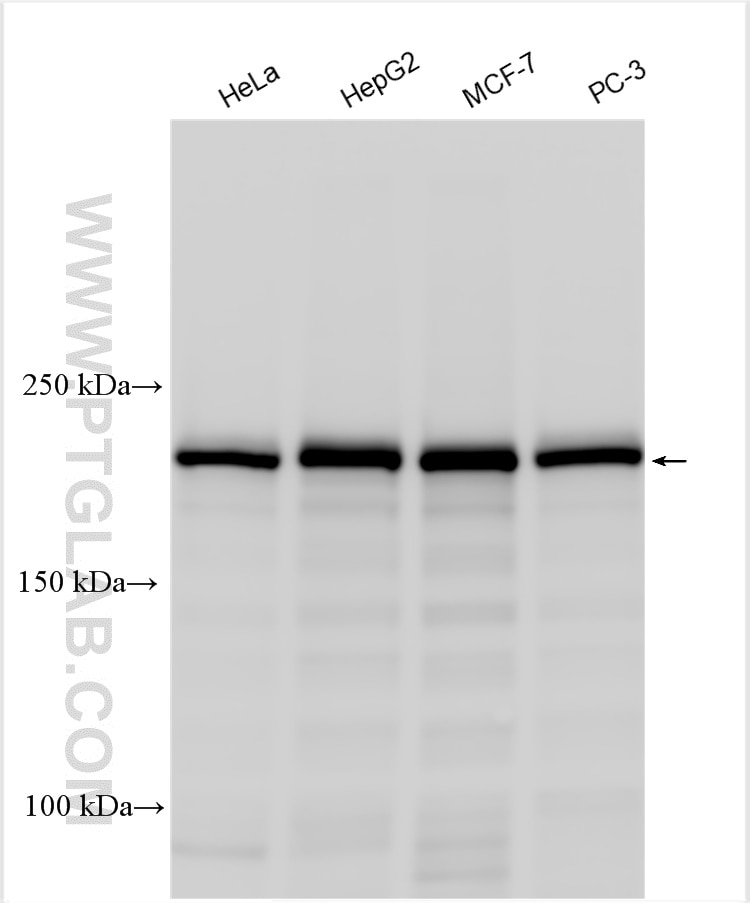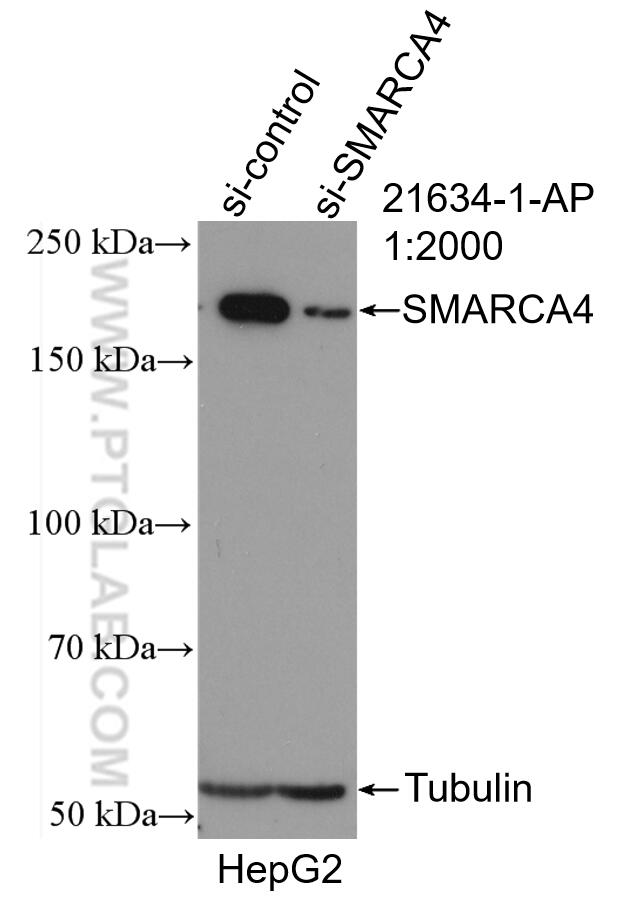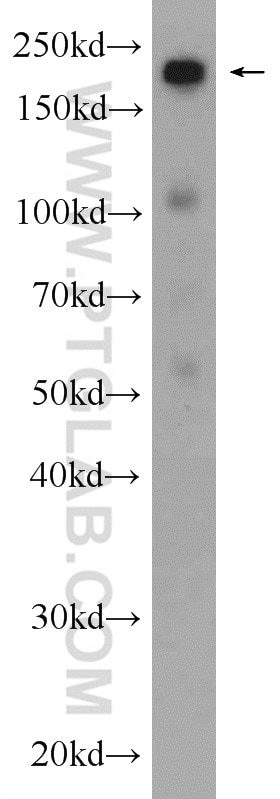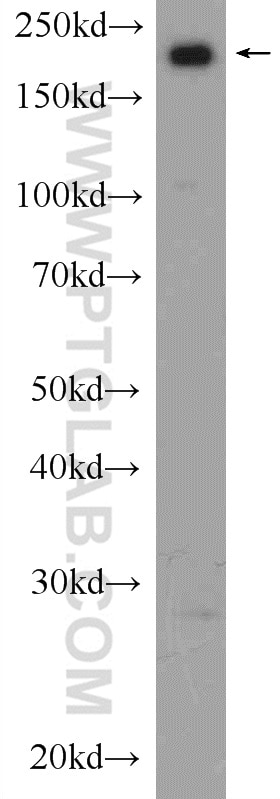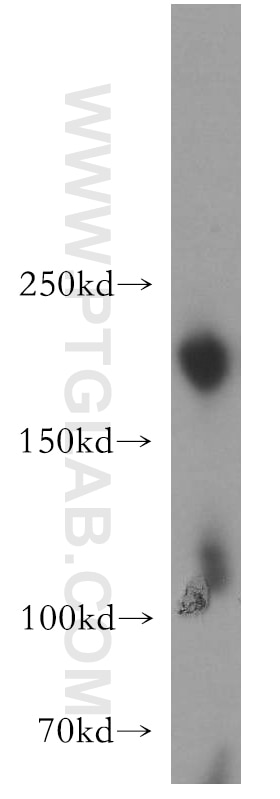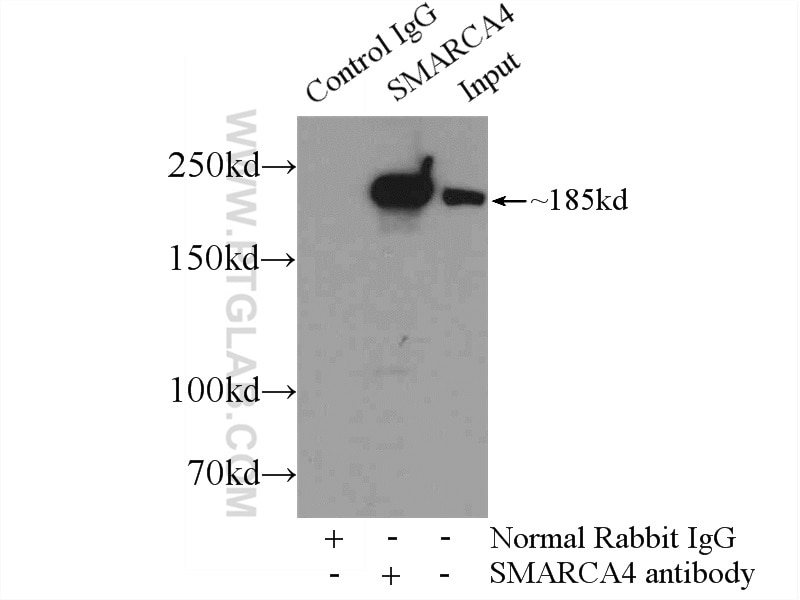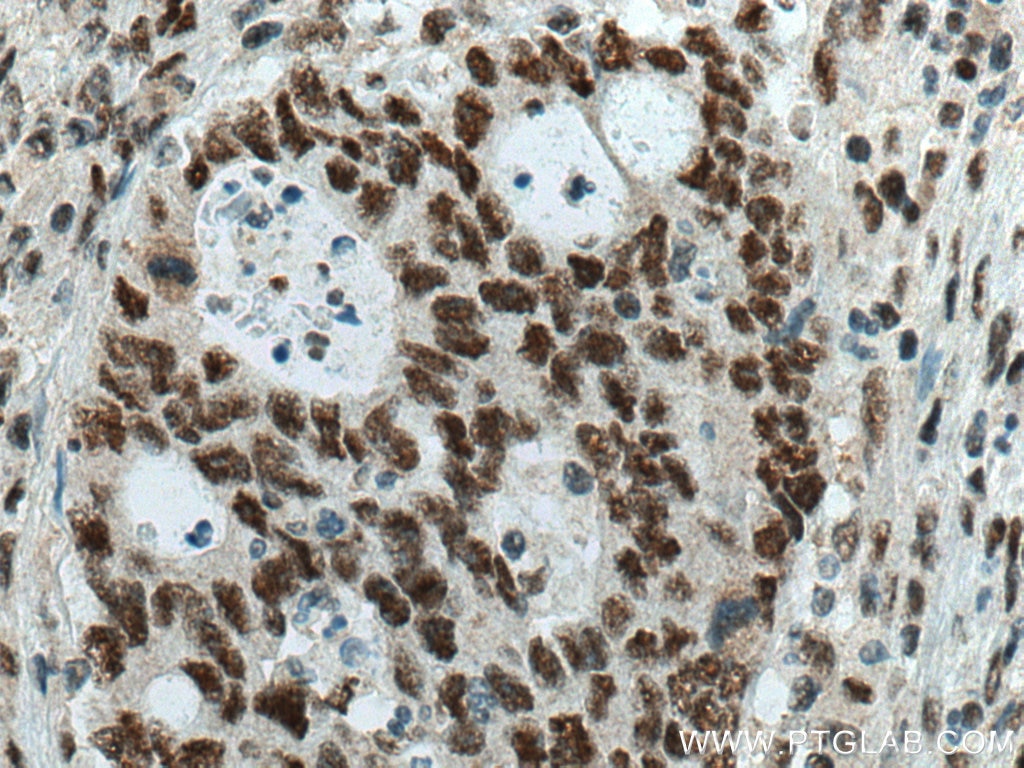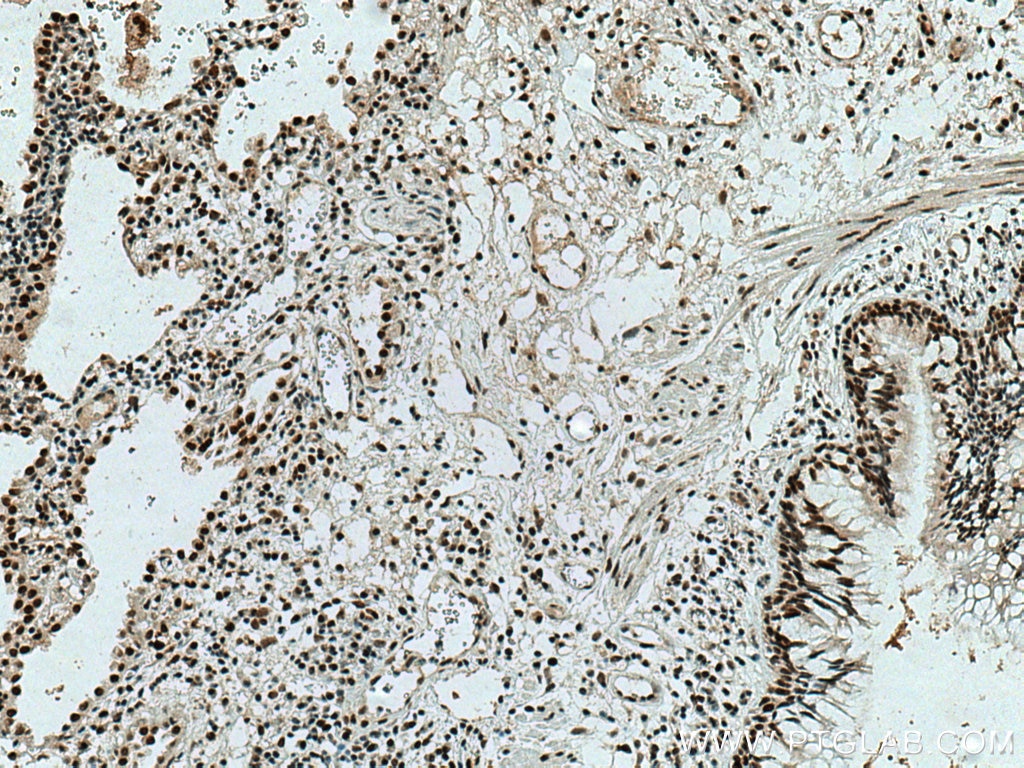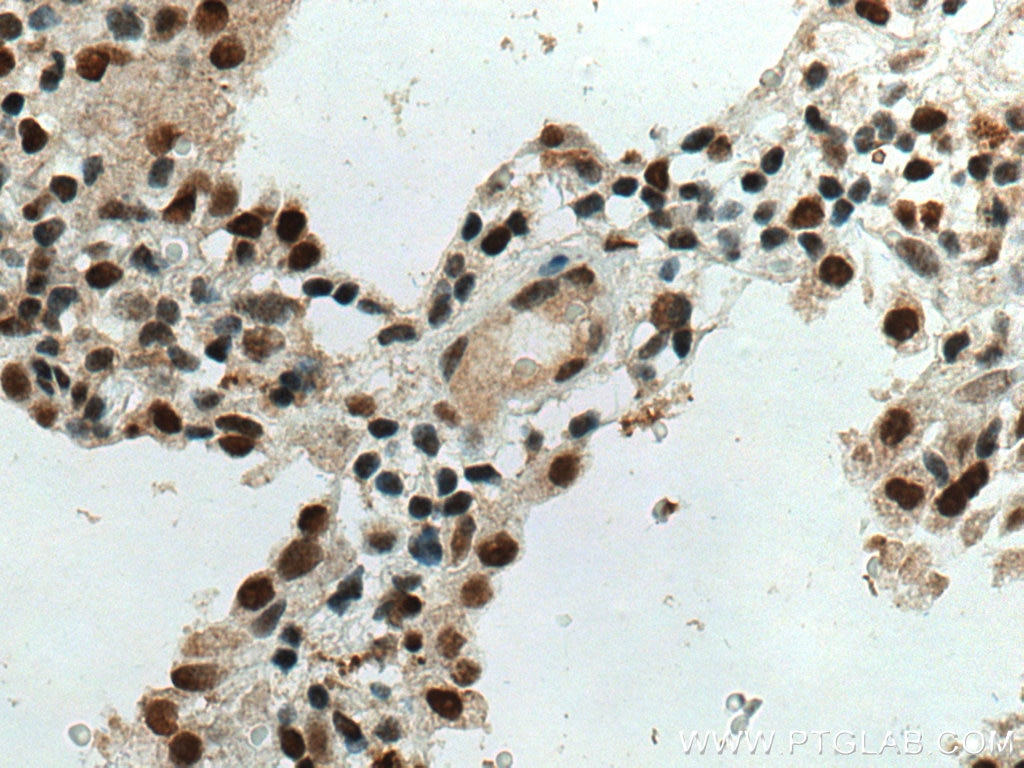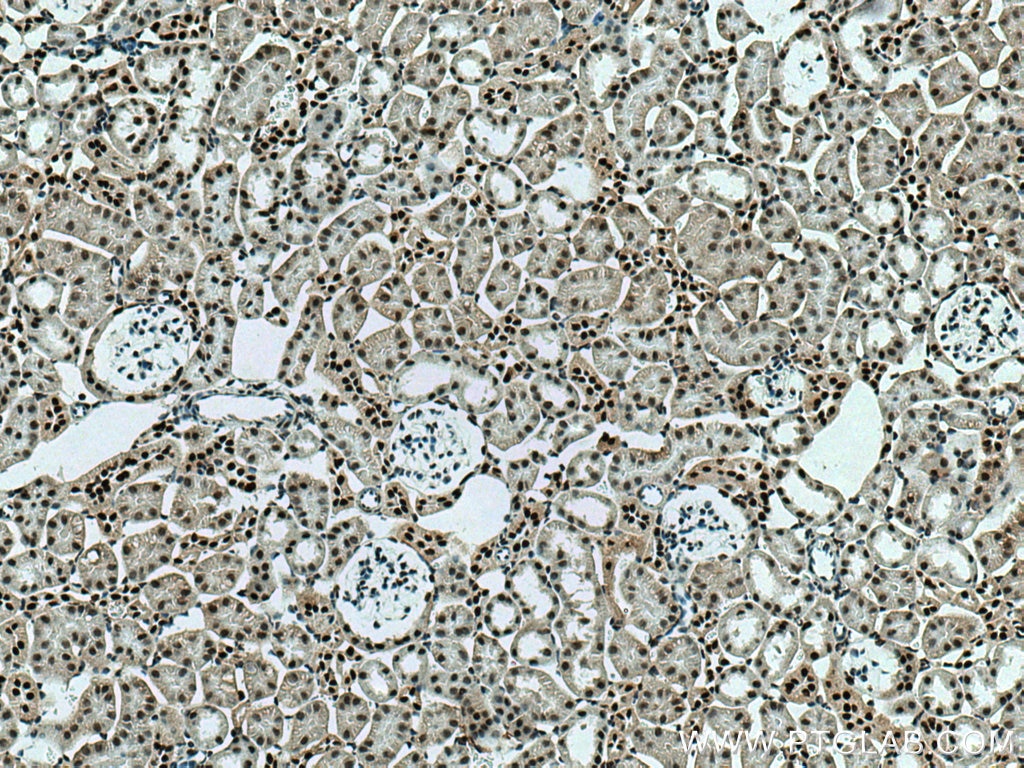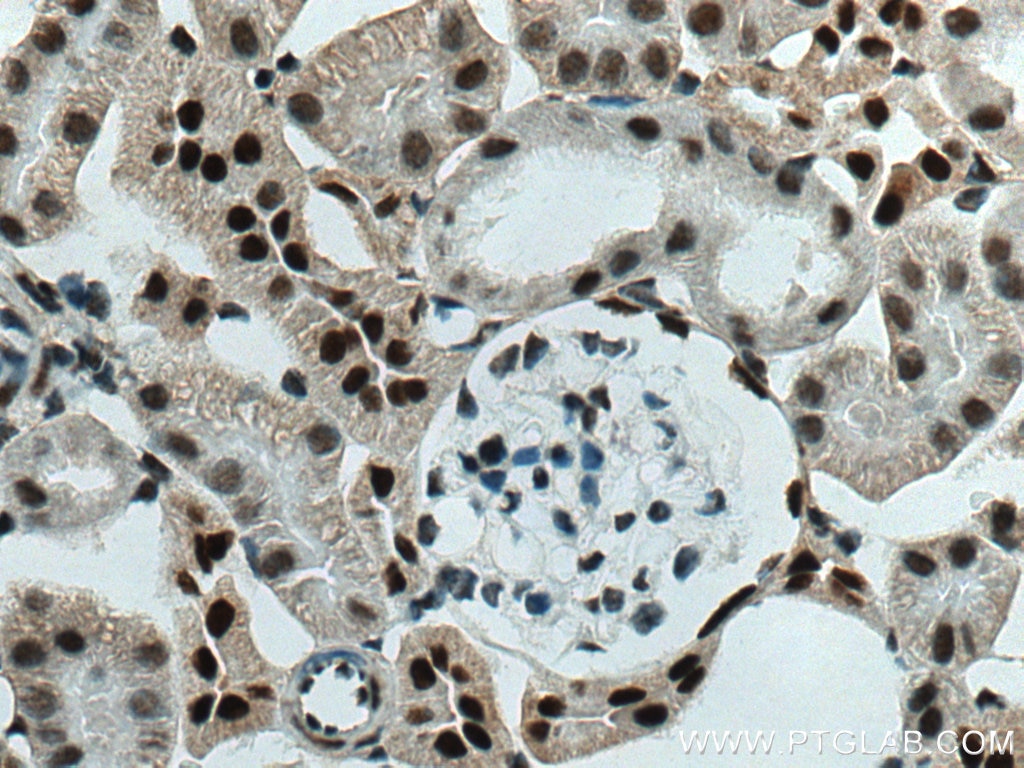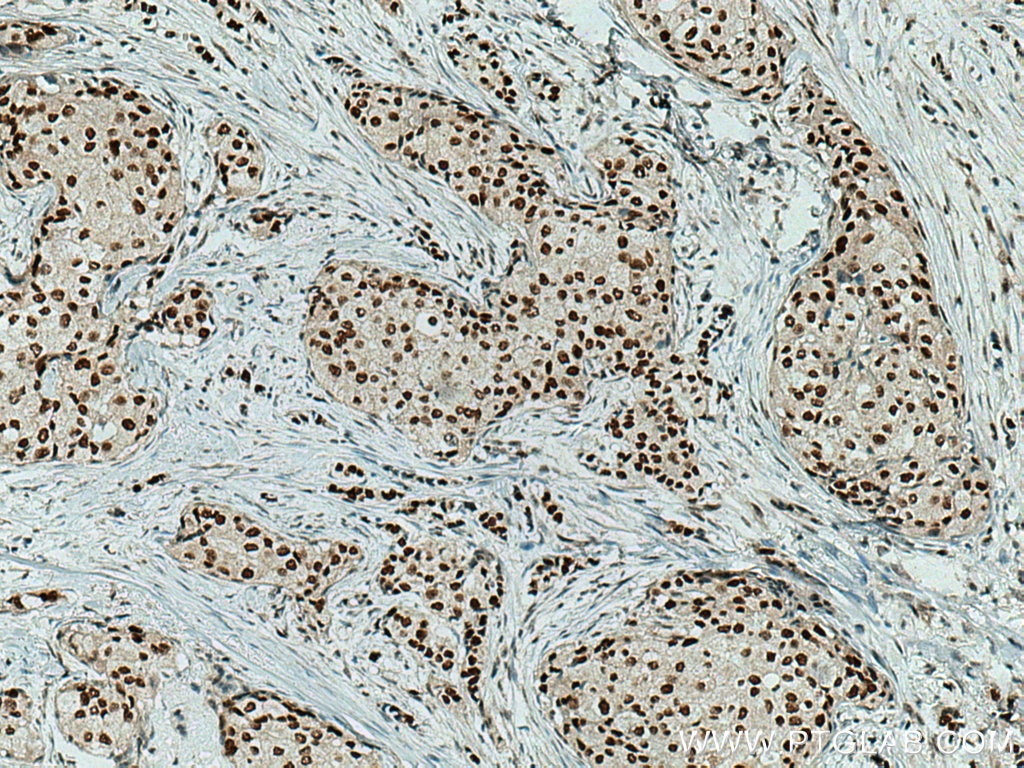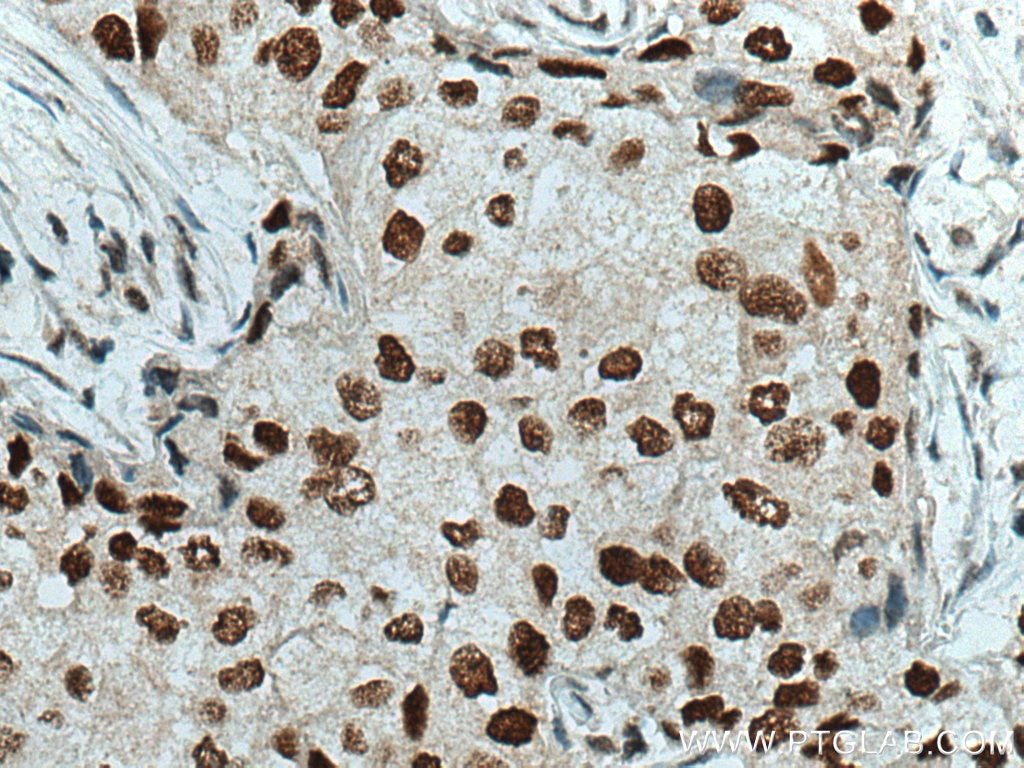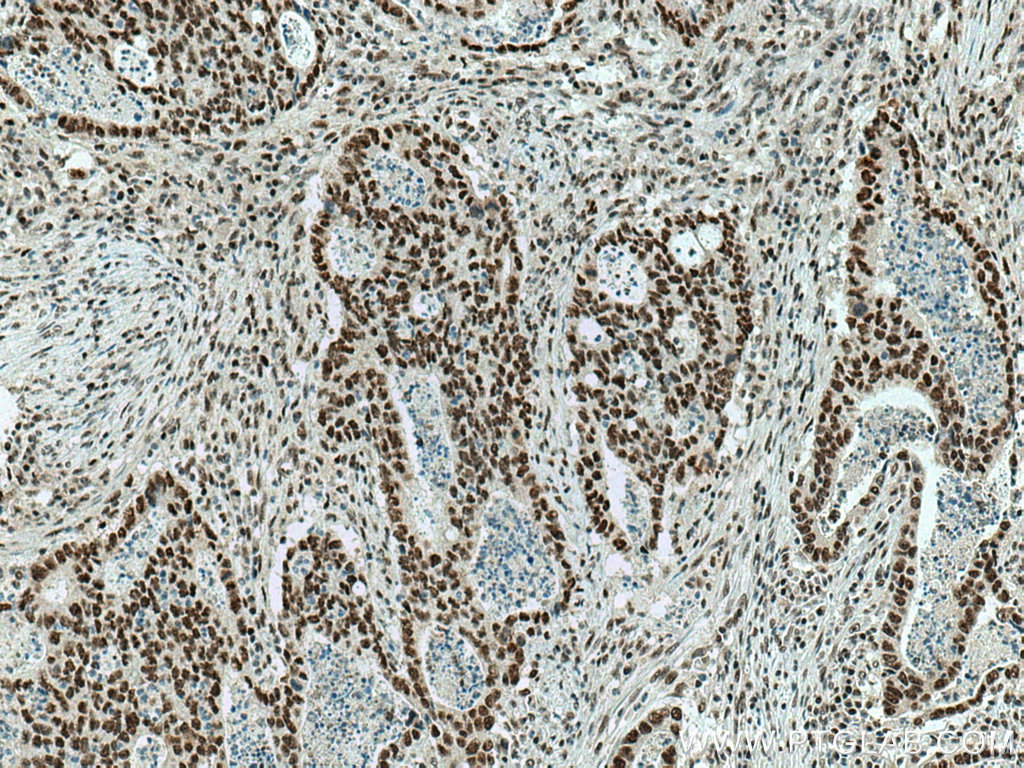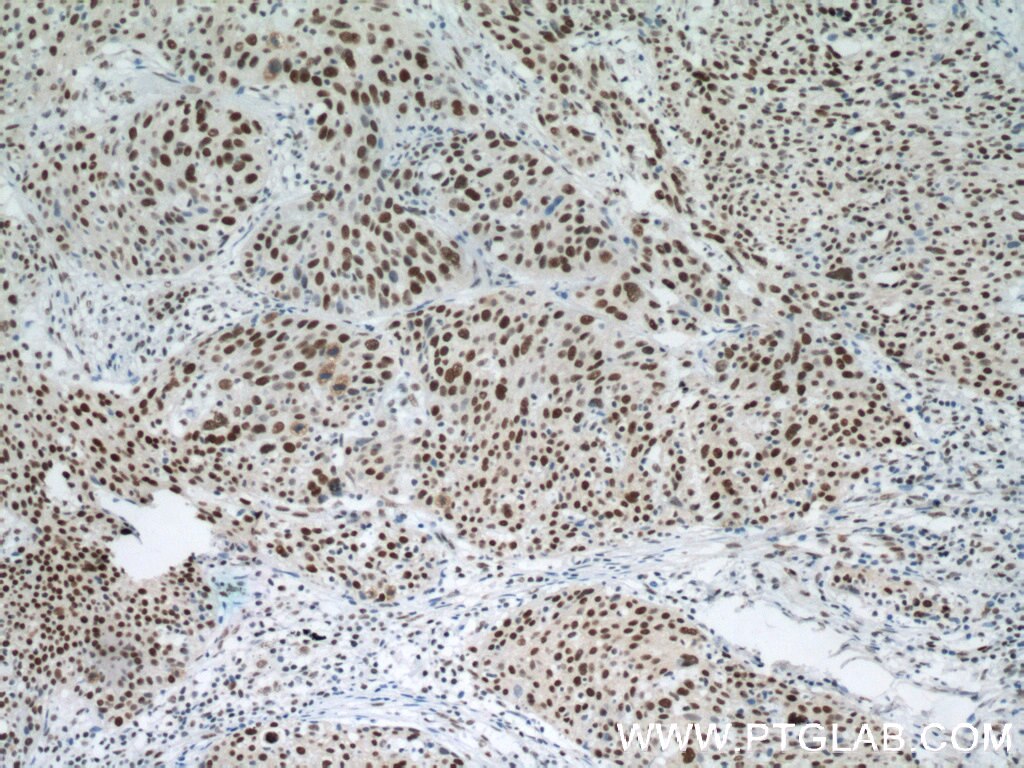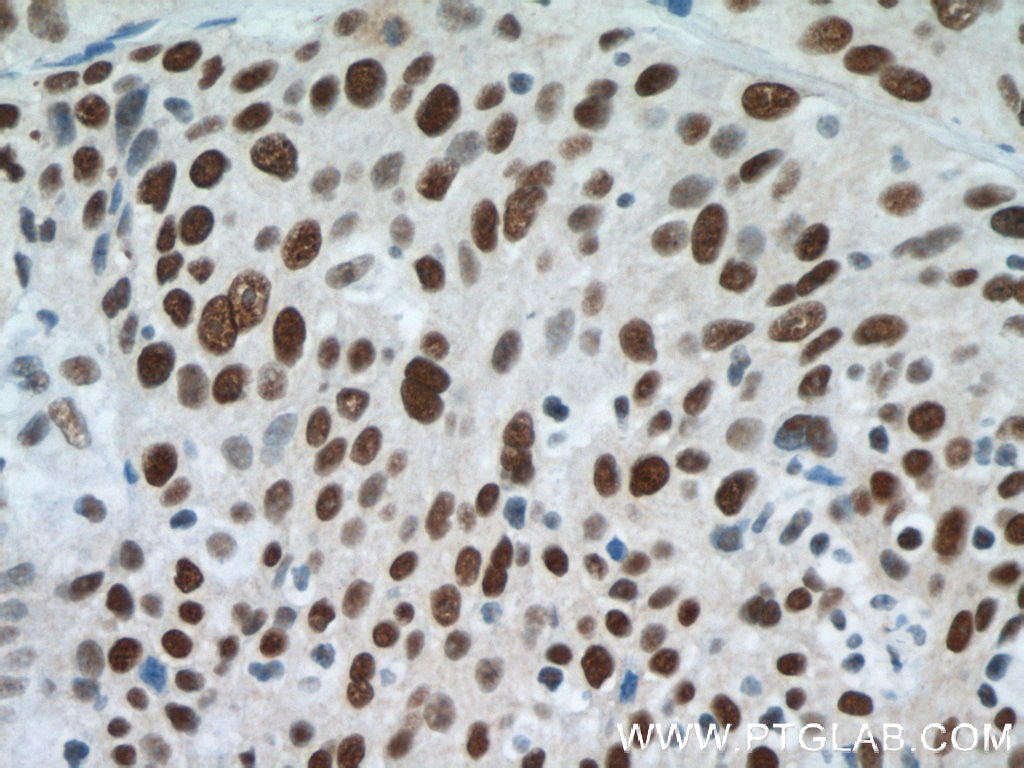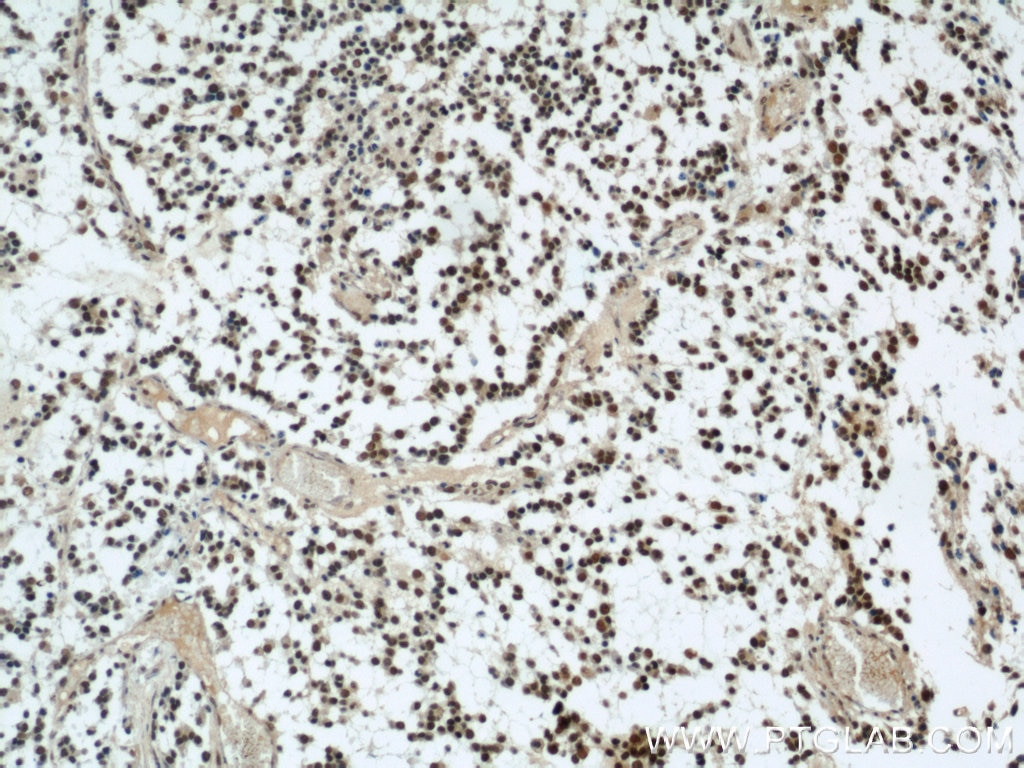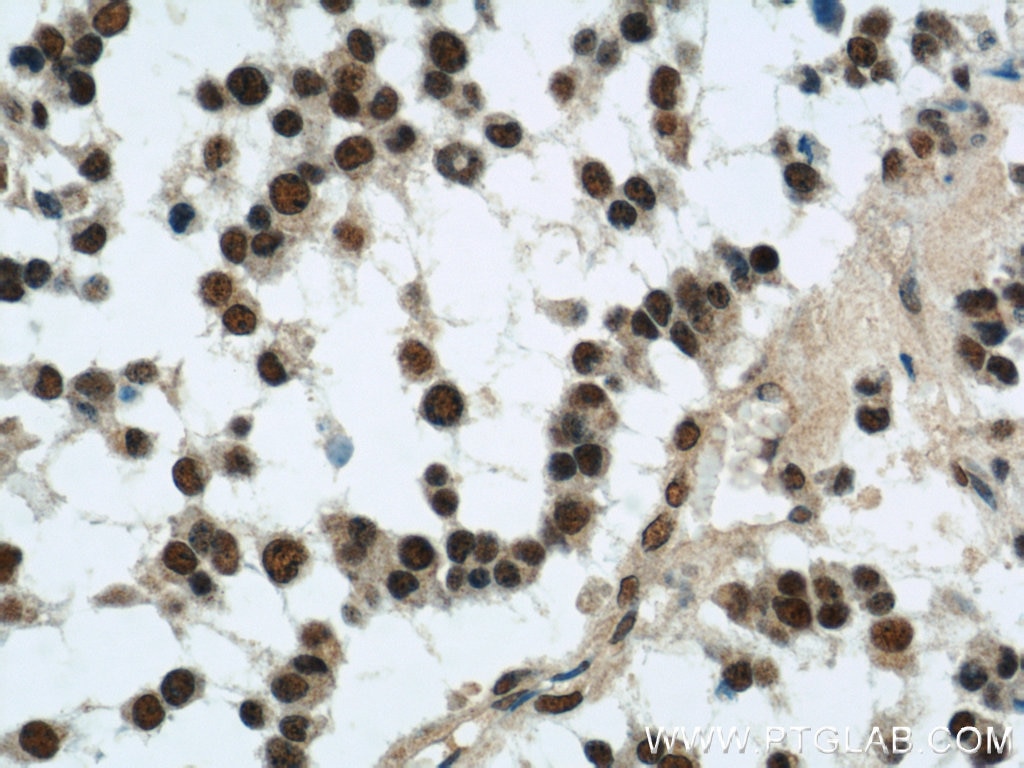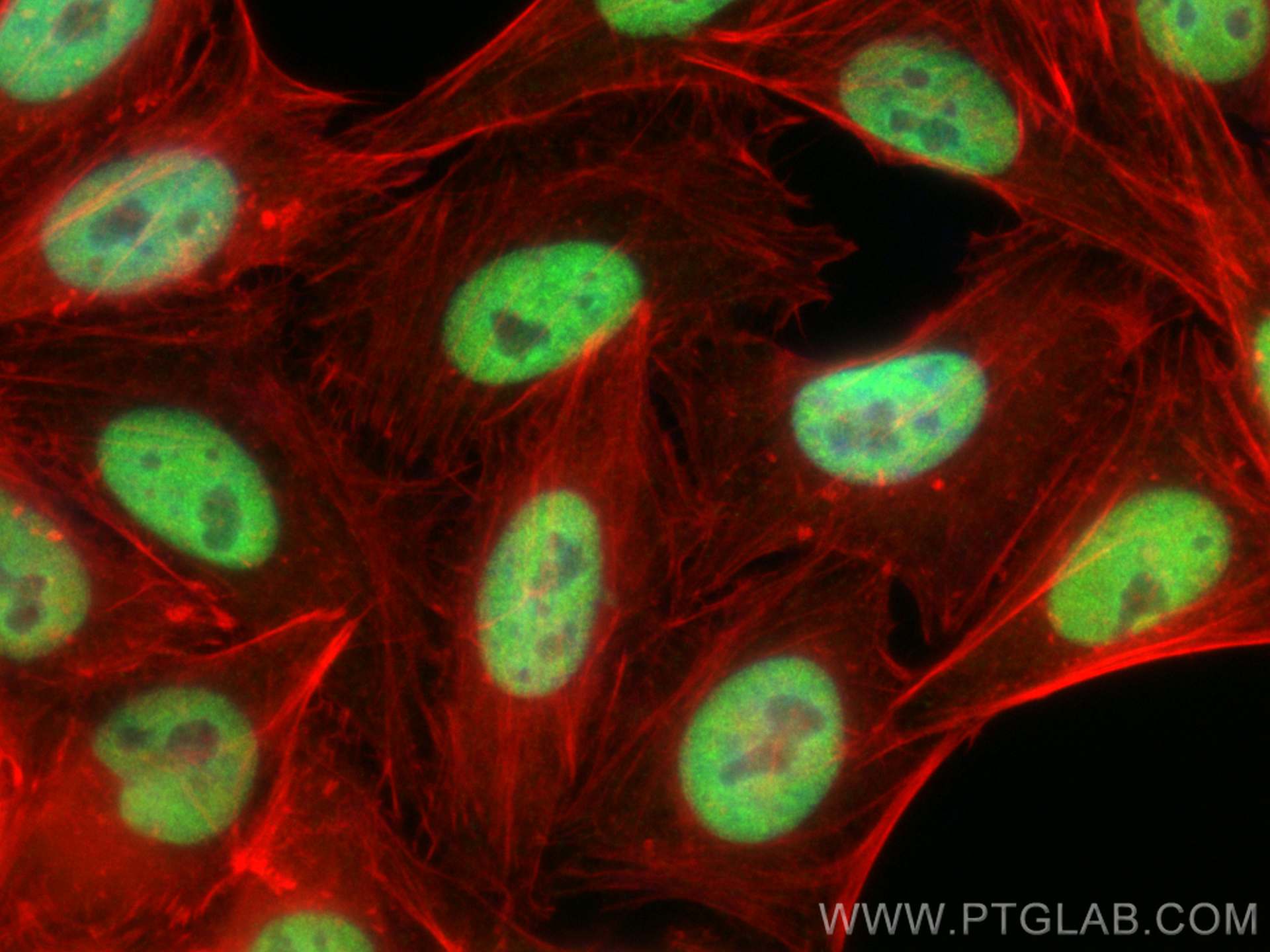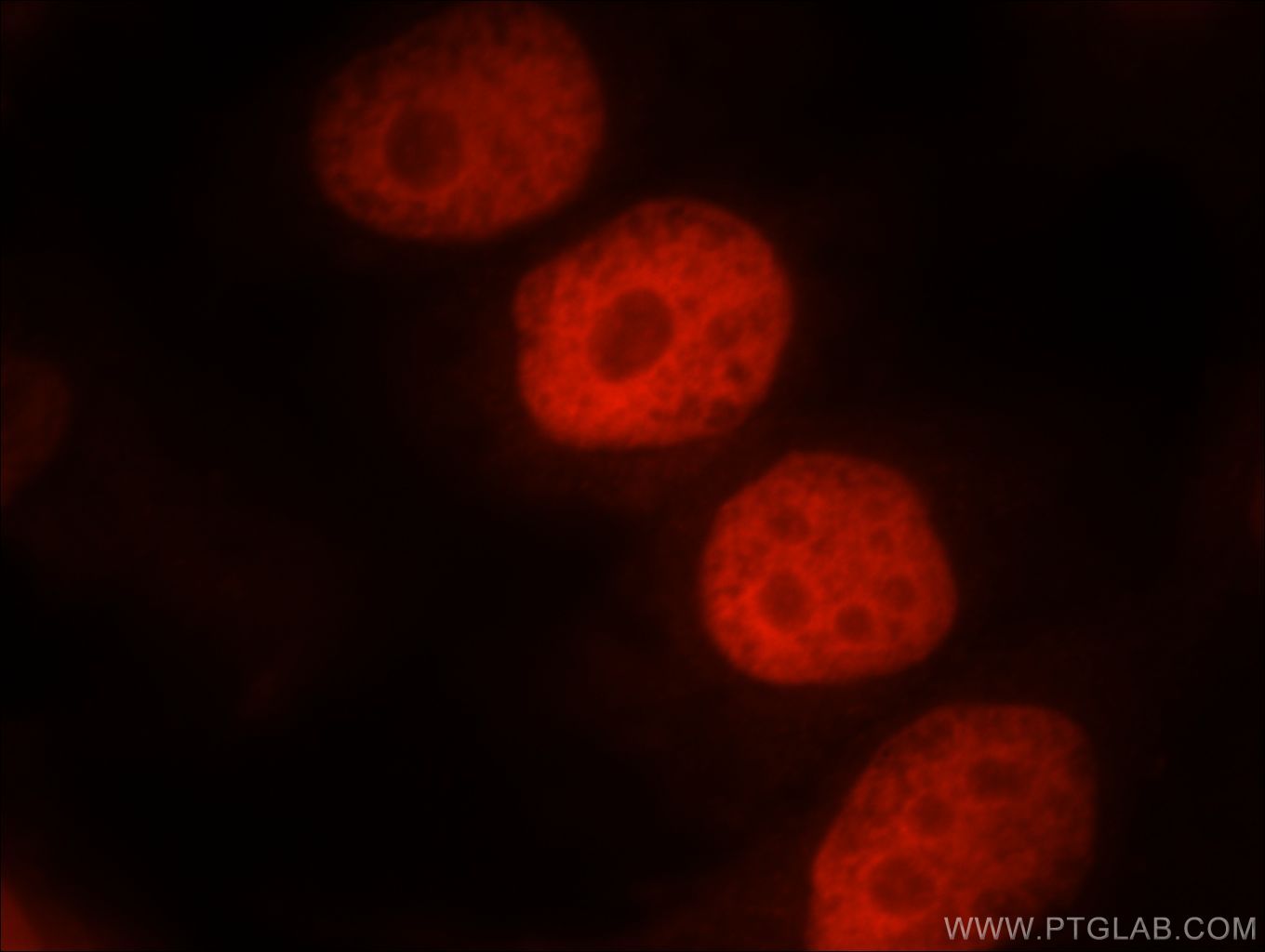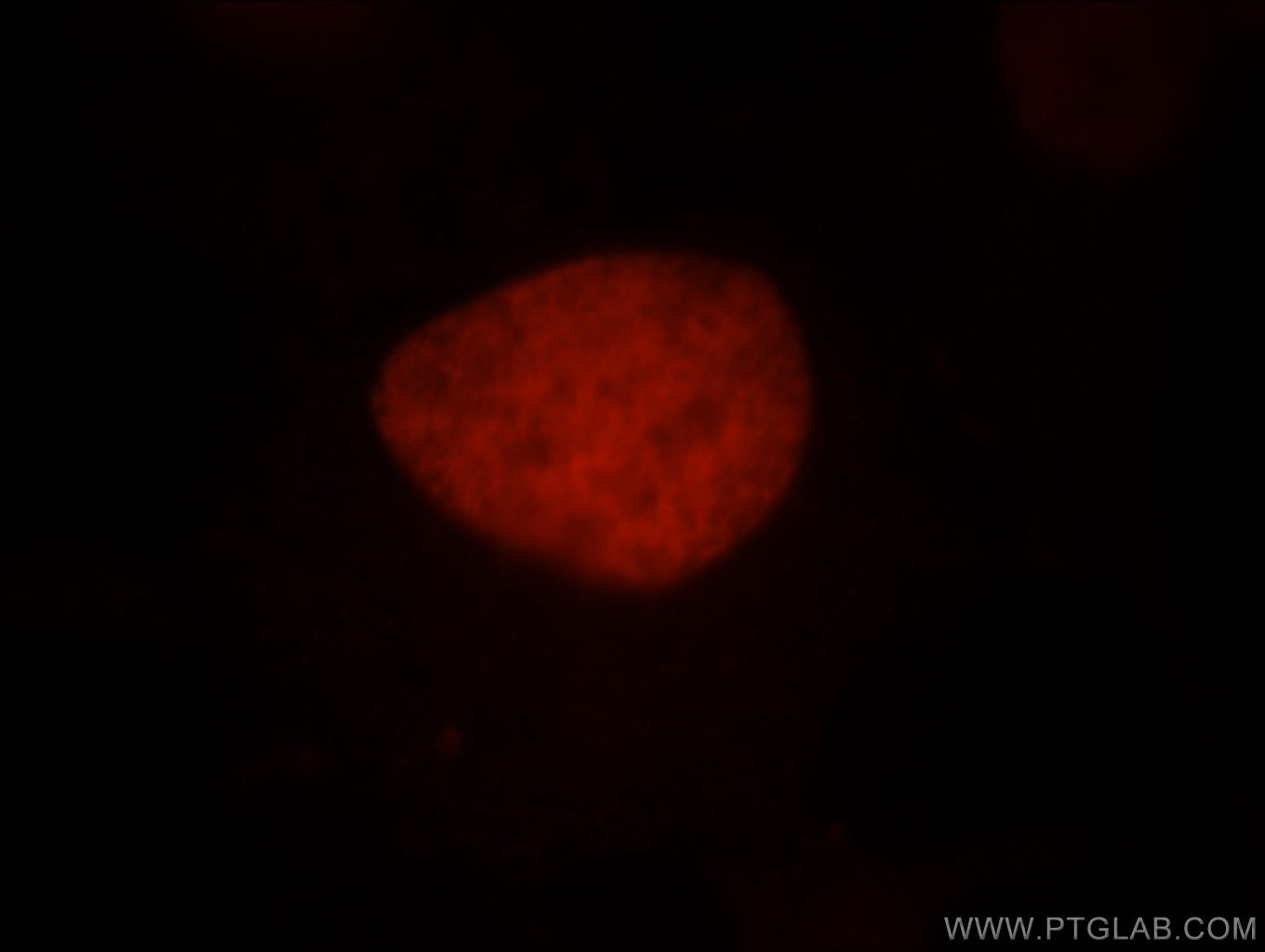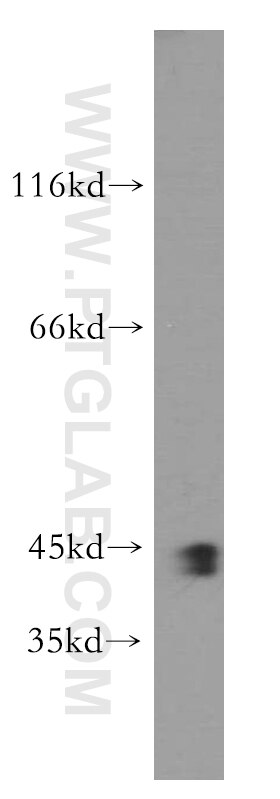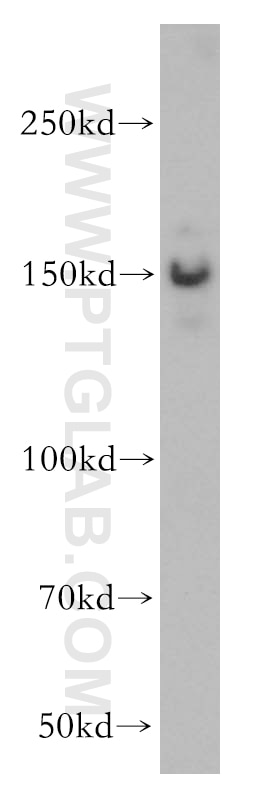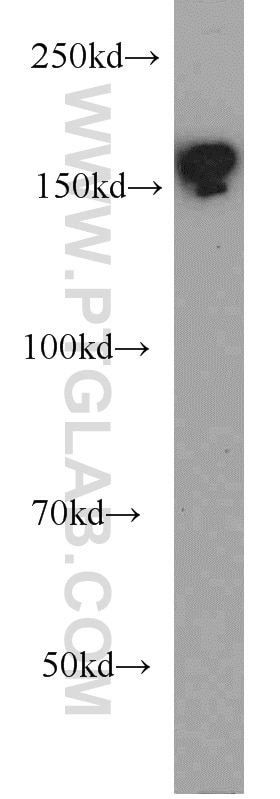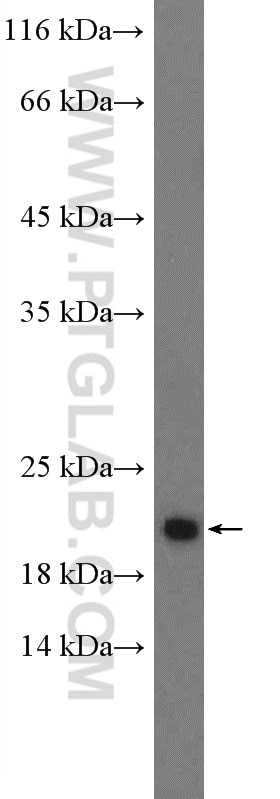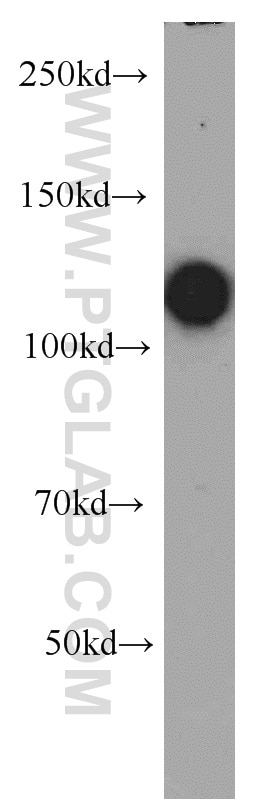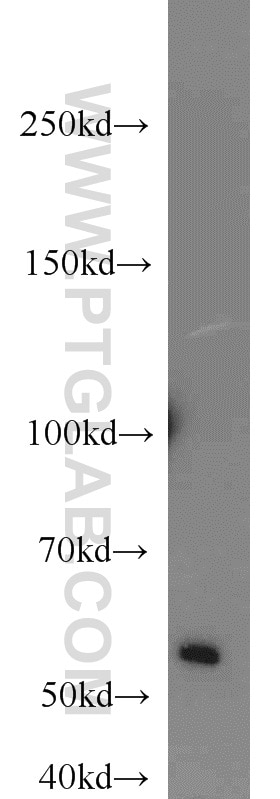- Phare
- Validé par KD/KO
Anticorps Polyclonal de lapin anti-SMARCA4/BRG1
SMARCA4/BRG1 Polyclonal Antibody for WB, IP, IF, IHC, ELISA
Hôte / Isotype
Lapin / IgG
Réactivité testée
Humain, rat, souris et plus (2)
Applications
WB, IHC, IF/ICC, IP, CoIP, ChIP, RIP, ELISA
Conjugaison
Non conjugué
N° de cat : 21634-1-AP
Synonymes
Galerie de données de validation
Applications testées
| Résultats positifs en WB | cellules HeLa, cellules HepG2, cellules MCF-7, cellules PC-3, tissu cérébral de rat, tissu cérébral de souris, tissu placentaire humain |
| Résultats positifs en IP | cellules HeLa |
| Résultats positifs en IHC | tissu de cancer du côlon humain, tissu de cancer du poumon humain, tissu de cancer du sein humain, tissu de gliome humain, tissu rénal de souris il est suggéré de démasquer l'antigène avec un tampon de TE buffer pH 9.0; (*) À défaut, 'le démasquage de l'antigène peut être 'effectué avec un tampon citrate pH 6,0. |
| Résultats positifs en IF/ICC | cellules HepG2, cellules HEK-293, cellules HeLa |
Dilution recommandée
| Application | Dilution |
|---|---|
| Western Blot (WB) | WB : 1:500-1:3000 |
| Immunoprécipitation (IP) | IP : 0.5-4.0 ug for 1.0-3.0 mg of total protein lysate |
| Immunohistochimie (IHC) | IHC : 1:200-1:800 |
| Immunofluorescence (IF)/ICC | IF/ICC : 1:300-1:1200 |
| It is recommended that this reagent should be titrated in each testing system to obtain optimal results. | |
| Sample-dependent, check data in validation data gallery | |
Informations sur le produit
21634-1-AP cible SMARCA4/BRG1 dans les applications de WB, IHC, IF/ICC, IP, CoIP, ChIP, RIP, ELISA et montre une réactivité avec des échantillons Humain, rat, souris
| Réactivité | Humain, rat, souris |
| Réactivité citée | rat, bovin, Humain, poisson-zèbre, souris |
| Hôte / Isotype | Lapin / IgG |
| Clonalité | Polyclonal |
| Type | Anticorps |
| Immunogène | SMARCA4/BRG1 Protéine recombinante Ag16256 |
| Nom complet | SWI/SNF related, matrix associated, actin dependent regulator of chromatin, subfamily a, member 4 |
| Masse moléculaire calculée | 1647 aa, 185 kDa |
| Poids moléculaire observé | 185 kDa |
| Numéro d’acquisition GenBank | BC150298 |
| Symbole du gène | SMARCA4 |
| Identification du gène (NCBI) | 6597 |
| Conjugaison | Non conjugué |
| Forme | Liquide |
| Méthode de purification | Purification par affinité contre l'antigène |
| Tampon de stockage | PBS avec azoture de sodium à 0,02 % et glycérol à 50 % pH 7,3 |
| Conditions de stockage | Stocker à -20°C. Stable pendant un an après l'expédition. L'aliquotage n'est pas nécessaire pour le stockage à -20oC Les 20ul contiennent 0,1% de BSA. |
Informations générales
SMARCA4, also named as BAF190A, BRG1, SNF2B and SNF2L4, belongs to the SNF2/RAD54 helicase family. SMARCA4 is a transcriptional coactivator cooperating with nuclear hormone receptors to potentiate transcriptional activation. It is a component of the CREST-BRG1 complex, a multiprotein complex that regulates promoter activation by orchestrating a calcium-dependent release of a repressor complex and a recruitment of an activator complex. It is also involved in vitamin D-coupled transcription regulation via its association with the WINAC complex, a chromatin-remodeling complex recruited by vitamin D receptor (VDR), which is required for the ligand-bound VDR-mediated transrepression of the CYP27B1 gene.
Protocole
| Product Specific Protocols | |
|---|---|
| WB protocol for SMARCA4/BRG1 antibody 21634-1-AP | Download protocol |
| IHC protocol for SMARCA4/BRG1 antibody 21634-1-AP | Download protocol |
| IF protocol for SMARCA4/BRG1 antibody 21634-1-AP | Download protocol |
| IP protocol for SMARCA4/BRG1 antibody 21634-1-AP | Download protocol |
| Standard Protocols | |
|---|---|
| Click here to view our Standard Protocols |
Publications
| Species | Application | Title |
|---|---|---|
J Clin Oncol Genomic Characterization of Non-Small-Cell Lung Cancer in African Americans by Targeted Massively Parallel Sequencing. | ||
Cell Stem Cell The long noncoding RNA lncTCF7 promotes self-renewal of human liver cancer stem cells through activation of Wnt signaling. | ||
Mol Cell SPT5 stabilizes RNA polymerase II, orchestrates transcription cycles, and maintains the enhancer landscape. | ||
Nucleic Acids Res Reactivation of the G1 enhancer landscape underlies core circuitry addiction to SWI/SNF | ||
Nat Commun LncBRM initiates YAP1 signalling activation to drive self-renewal of liver cancer stem cells. | ||
Nucleic Acids Res HRP2-DPF3a-BAF complex coordinates histone modification and chromatin remodeling to regulate myogenic gene transcription. |
Avis
The reviews below have been submitted by verified Proteintech customers who received an incentive forproviding their feedback.
FH Satyendra (Verified Customer) (07-16-2021) | I have marked Knock out as KO
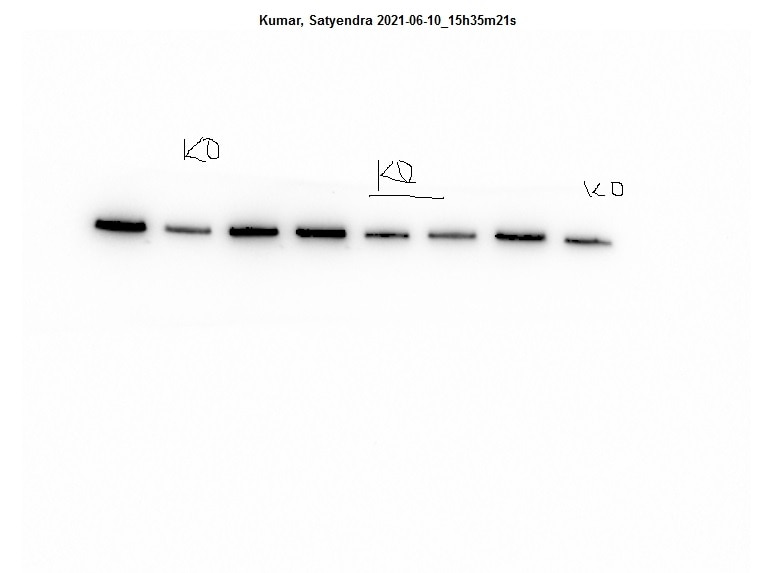 |
